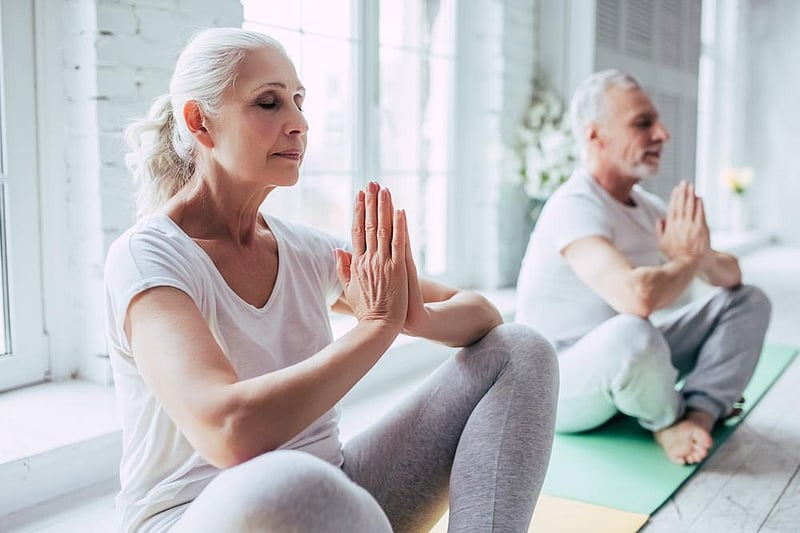Get Healthy!

- Cara Murez
- Posted December 8, 2022
Battling High Blood Pressure? Adding Yoga to Your Workout Might Help
Adding a little yoga to an exercise routine can be the fix someone needs to drop high blood pressure, a small study suggests.
"As observed in several studies, we recommend that patients try to find exercise and stress relief for the management of hypertension [high blood pressure] and cardiovascular disease in whatever form they find most appealing,"said Dr. Paul Poirier, of the Quebec Heart and Lung Institute -- Laval University in Quebec, Canada.
"Our study shows that structured yoga practices can be a healthier addition to aerobic exercise than simply muscle stretching,"he said.
The findings were published Dec. 8 in the Canadian Journal of Cardiology.
"While there is some evidence that yoga interventions and exercise have equal and/or superior cardiovascular outcomes, there is considerable variability in yoga types, components, frequency, session length, duration and intensity. We sought to apply a rigorous scientific approach to identify cardiovascular risk factors for which yoga is beneficial for at-risk patients and ways it could be applied in a health care setting, such as a primary prevention program,"Poirier said in a journal news release.
Yoga is, of course, a spiritual and exercise practice for millions of people worldwide. It is widely accepted as a form of exercise.
The researchers recruited 60 people for this study. Each had been diagnosed with high blood pressure and metabolic syndrome, which is a cluster of conditions that raise the risk of heart problems and stroke.
The participants were divided into two groups. Over three months, they did 15 minutes of either structured yoga or stretching in addition to 30 minutes of aerobic exercise five times a week.
After three months, both groups had a decrease in their resting blood pressure, as well as mean arterial blood pressure and heart rate.
For the yoga group, systolic blood pressure (the top number) decreased by 10 mm Hg. For the stretching group, it dropped just 4 mm Hg, the findings showed.
Those doing yoga also reduced resting heart rate and 10-year cardiovascular risk.
For the study, doctors measured the participants' blood pressure, body size, inflammation, blood sugar, lipids and scores for risk of heart attack. They found no difference between the two groups in age, sex, smoking rates, body mass index (BMI), resting systolic and diastolic blood pressure, resting heart rate and pulse pressure when the study began.
More information
The U.S. National Center for Complementary and Integrative Health has more on yoga.
SOURCE: Canadian Journal of Cardiology, news release, Dec. 8, 2022







